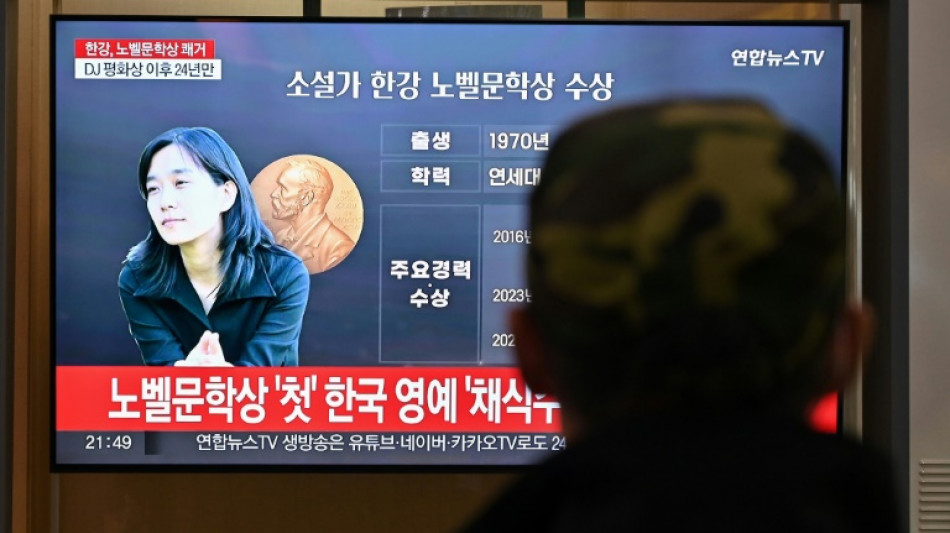
-
 Guirassy helps Dortmund past Gladbach, putting top-four in sight
Guirassy helps Dortmund past Gladbach, putting top-four in sight
-
Alexander-Arnold lauds 'special' Liverpool moments

-
 Pina strikes twice as Barca rout Chelsea in Champions League semi
Pina strikes twice as Barca rout Chelsea in Champions League semi
-
Rohit, Suryakumar on song as Mumbai hammer Chennai in IPL

-
 Dortmund beat Gladbach to keep top-four hopes alive
Dortmund beat Gladbach to keep top-four hopes alive
-
Leicester relegated from the Premier League as Liverpool close in on title

-
 Alexander-Arnold fires Liverpool to brink of title, Leicester relegated
Alexander-Arnold fires Liverpool to brink of title, Leicester relegated
-
Maresca leaves celebrations to players after Chelsea sink Fulham

-
 Trump eyes gutting US diplomacy in Africa, cutting soft power: draft plan
Trump eyes gutting US diplomacy in Africa, cutting soft power: draft plan
-
Turkey bans elective C-sections at private medical centres

-
 Lebanon army says 3 troops killed in munitions blast in south
Lebanon army says 3 troops killed in munitions blast in south
-
N.America moviegoers embrace 'Sinners' on Easter weekend

-
 Man Utd 'lack a lot' admits Amorim after Wolves loss
Man Utd 'lack a lot' admits Amorim after Wolves loss
-
Arteta hopes Arsenal star Saka will be fit to face PSG

-
 Ukrainian troops celebrate Easter as blasts punctuate Putin's truce
Ukrainian troops celebrate Easter as blasts punctuate Putin's truce
-
Rune defeats Alcaraz to win Barcelona Open

-
 Outsider Skjelmose in Amstel Gold heist ahead of Pogacar and Evenepoel
Outsider Skjelmose in Amstel Gold heist ahead of Pogacar and Evenepoel
-
Arsenal make Liverpool wait for title party, Chelsea beat Fulham

-
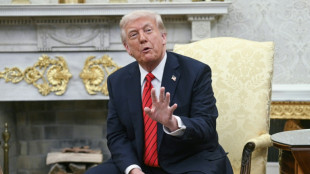 Trump slams 'weak' judges as deportation row intensifies
Trump slams 'weak' judges as deportation row intensifies
-
Arsenal stroll makes Liverpool wait for title as Ipswich face relegation

-
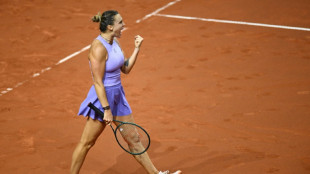 Sabalenka to face Ostapenko in Stuttgart final
Sabalenka to face Ostapenko in Stuttgart final
-
Kohli, Padikkal guide Bengaluru to revenge win over Punjab
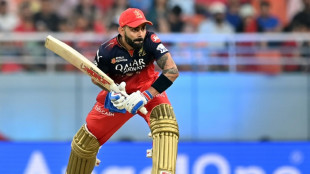
-
 US aid cuts strain response to health crises worldwide: WHO
US aid cuts strain response to health crises worldwide: WHO
-
Birthday boy Zverev roars back to form with Munich win

-
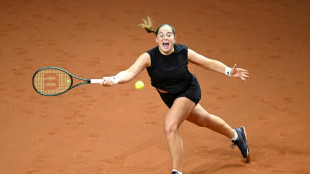 Ostapenko eases past Alexandrova into Stuttgart final
Ostapenko eases past Alexandrova into Stuttgart final
-
Zimbabwe on top in first Test after Bangladesh out for 191

-
 De Bruyne 'surprised' over Man City exit
De Bruyne 'surprised' over Man City exit
-
Frail Pope Francis takes to popemobile to greet Easter crowd

-
 Lewandowski injury confirmed in blow to Barca quadruple bid
Lewandowski injury confirmed in blow to Barca quadruple bid
-
Russia and Ukraine accuse each other of breaching Easter truce

-
 Zimbabwe bowl Bangladesh out for 191 in first Test in Sylhet
Zimbabwe bowl Bangladesh out for 191 in first Test in Sylhet
-
Ukrainians voice scepticism on Easter truce

-
 Pope wishes 'Happy Easter' to faithful in appearance at St Peter's Square
Pope wishes 'Happy Easter' to faithful in appearance at St Peter's Square
-
Sri Lanka police probe photo of Buddha tooth relic

-
 Home hero Wu wows Shanghai crowds by charging to China Open win
Home hero Wu wows Shanghai crowds by charging to China Open win
-
Less Soviet, more inspiring: Kyrgyzstan seeks new anthem

-
 Defending champion Kyren Wilson crashes out in first round of World Snooker Championship
Defending champion Kyren Wilson crashes out in first round of World Snooker Championship
-
NASA's oldest active astronaut returns to Earth on 70th birthday

-
 Exec linked to Bangkok building collapse arrested
Exec linked to Bangkok building collapse arrested
-
Zelensky says Russian attacks ongoing despite Putin's Easter truce

-
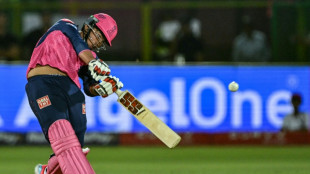 Vaibhav Suryavanshi: the 14-year-old whose IPL dream came true
Vaibhav Suryavanshi: the 14-year-old whose IPL dream came true
-
Six drowning deaths as huge waves hit Australian coast

-
 Ukrainian soldiers' lovers kept waiting as war drags on
Ukrainian soldiers' lovers kept waiting as war drags on
-
T'Wolves dominate Lakers, Nuggets edge Clippers as NBA playoffs start

-
 Taxes on super rich and tech giants stall under Trump
Taxes on super rich and tech giants stall under Trump
-
Star Wars series 'Andor' back for final season

-
 Neighbours improvise first aid for wounded in besieged Sudan city
Neighbours improvise first aid for wounded in besieged Sudan city
-
Tariffs could lift Boeing and Airbus plane prices even higher

-
 Analysts warn US could be handing chip market to China
Analysts warn US could be handing chip market to China
-
Unbeaten Miami edge Columbus in front of big MLS crowd in Cleveland


S. Korea's Nobel winner Han Kang a modest, thought-provoking writer
South Korean author Han Kang, who won the Nobel Prize in Literature Thursday, has vowed after receiving other top literary awards that she would continue writing "as if nothing had happened".
The 53-year-old is the first South Korean to receive the honour, the Swedish Academy hailing "her intense poetic prose that confronts historical traumas and exposes the fragility of human life".
Han's "The Vegetarian", which tells the story of an ordinary woman's rejection of convention from three different perspectives, also won the Booker prize in 2016.
She said after that award, which caused a spike in international sales on top of her more familiar South Korean market, that she hoped to stay out of the limelight.
"I took the subway here," she told reporters at the time. "I want to continue living as if nothing had happened."
She is only the second South Korean to receive a Nobel prize, after former president Kim Dae-jung received the Peace Prize in 2000 for his efforts to end tensions with North Korea.
Han's works are known for their profound and thought-provoking narratives, often exploring themes of violence and trauma.
Her 2014 novel "Human Acts" was inspired by the 1980 massacre in her home city of Gwangju, when pro-democracy protests were brutally suppressed by the military.
And 2016's "The White Book" is set in Warsaw and covers the turmoil, death and cruelty of war.
"I believe that writing a novel based on a historical event is not just about recounting past events, but about exploring human nature," Han said in an interview with the Yonhap news service last year.
She also said in a 2023 lecture in Gwangju that "the violent scenes depicted in the novels are not intended to reveal violence, but to stand on the other side of it".
- 'Inherited literature DNA'? -
Han's father was also a renowned novelist and, when "The Vegetarian" became 2007's most-read book in South Korea, local media praised her "inherited literature DNA".
Her father responded that she had "surpassed him a long time ago".
Han has said that writing is her way of making sense of the world.
"For me, to write is to endlessly question what is life, what is death, who am I," she said in a 2015 interview with the Literature Translation Institute of Korea.
"When I write, especially when I'm writing novels, I'm exchanging one, two, three, sometimes four years for that book," she said.
Many in South Korea expressed shock and delight at her win after other potential winners, including poet Ko Un, failed to attract the Nobel Academy's attention.
"I think many writers like me had given up, thinking that there is a limit to how Korean literature can be perceived to international audiences," Bae Yoon-eum, a novelist, told AFP.
"I was just stunned when I saw the news, my heart stopped but I am so happy. I am so proud that South Korean literature is finally being recognised."
- Translated fiction -
Literary merits aside, the success of "The Vegetarian", her first book to appear in English, was helped by coinciding with South Korea's emergence as a prominent player on the global cultural stage.
Han is from a new wave of younger writers eager to move away from the traditional Korean reverence for intellectualism that is often dominated by older male critics with tastes firmly rooted in the 1970s.
The author shared the 50,000 pounds ($72,000) Booker Prize cheque with her British translator Deborah Smith.
A dearth of capable translators, coupled with an equally limited number of works suitable for foreign readers, had long stymied efforts to find a wider audience for Korea's literary output.
That changed when the Literature Translation Institute of Korea (LTI), which was set up in 1996 and has championed new writers in recent years, allowed translators to choose the books on which they would like to work.
Translated fiction is still a very small genre, representing just 1.5 percent of fiction and 3.5 percent of literary fiction, but it provided five percent of fiction sales and seven percent of literary fiction sales last year.
Growth in translated Korean fiction has been particularly strong in markets such as Britain.
M.Thompson--AMWN